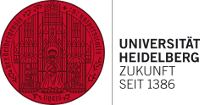Zwischen individueller politischer Orientierung und antizipierten Neutralitätsansprüchen
Angehende Lehrkräfte und ihr Zugang zu Politik
Autor/innen
Die Frage nach politischer Neutralität von (angehenden) Lehrkräften ist virulent im gesellschaftspolitischen Diskurs. Der Beitrag argumentiert auf Basis einer deskriptiven Reanalyse empirischer Daten des Nationalen Bildungspanels, dass Neutralität weder eine Lösung noch eine wirkliche Option im schulischen Kontext ist. Lehrkräfte handeln und denken nicht voraussetzungslos, sondern vor dem Hintergrund ihres je eigenen kulturellen (Erfahrungs-)Horizontes. Durch ihr Handeln, ihre Einschätzungen, ihre Kontextualisierungen und Wertungen tradieren sie, ob intendiert oder nichtintendiert, spezifische politische Inhalte und Deutungsmuster und eröffnen ihren Schüler:innen damit eine bestimmte Interpretation der Welt. In diesem Beitrag steht das Spannungsfeld zwischen antizipierten Neutralitätsvorstellungen von Lehrkräften und deren dennoch allgegenwärtigen politischen Überzeugungen im Fokus. Vor dem Hintergrund bildungswissenschaftlicher Professionsansätze wird dieses Spannungsverhältnis diskutiert und Facetten eines reflexiven Umgangs mit der eigenen Positioniertheit im Kontext von Perspektivenvielfalt skizziert. Abschließend wird danach gefragt, welchen Beitrag die hochschulische Lehrer:innenbildung zur Entwicklung eines professionellen Zugangs zu und Umgangs mit den eigenen politischen Überzeugungen leisten kann.




